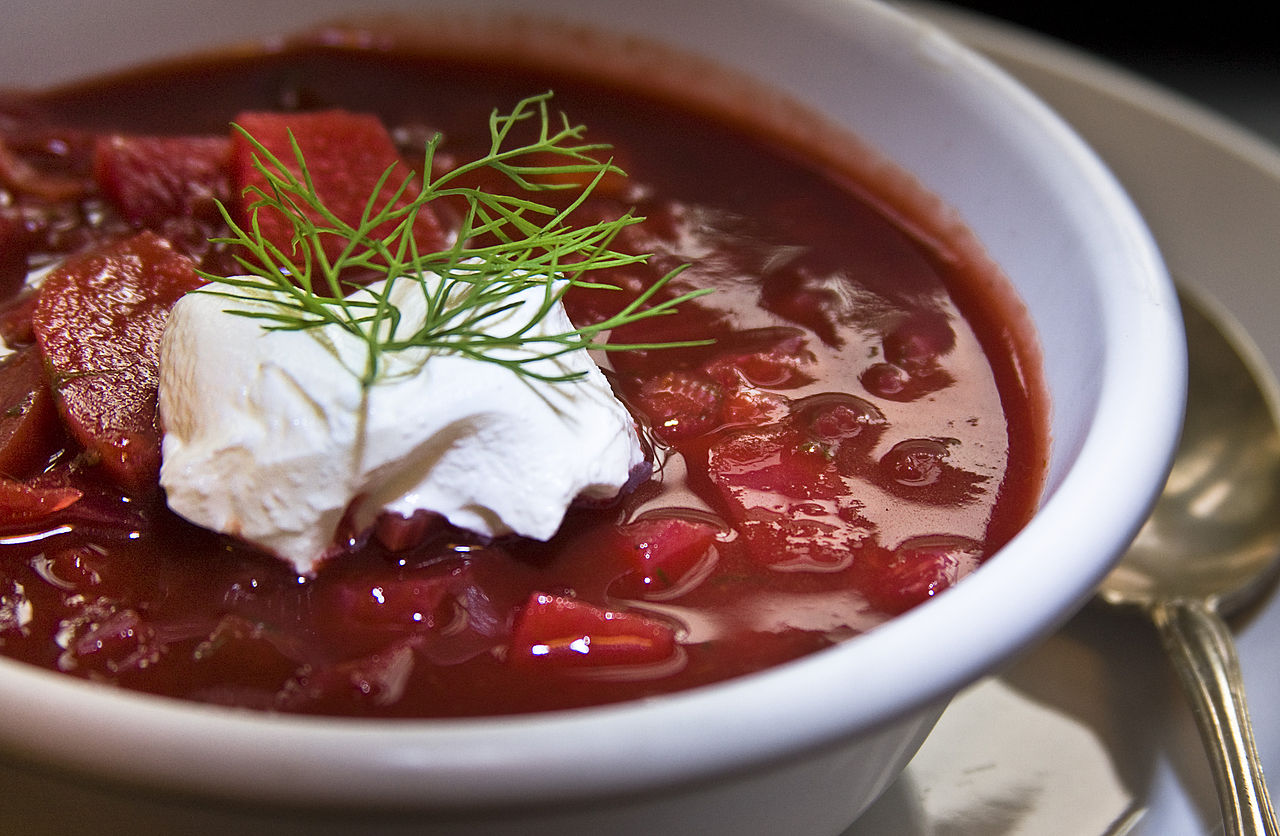“‘What is this?’ We asked, almost at random pointing to something which we translated as possibly having some faint relationship to beets.
“‘Beet soup,’ said the waiter, with a Cockney accent.
“‘Beet soup let it be then,’ we replied….In a twinkling a bowl of this compound—blood red, was put before us.
“‘What-what,’ we asked, ‘is the nationality of this dish—who invented it?’
“‘It’s Polish, sir, and quite a favorite ’ere, sir,’ he replied….Boldly we plunged in the spoon and gave it a determined stir; then our courage failed us. Of course there was nothing very repugnant in this innocent beet as a vegetable; but mostly associated with the idea of vinegar, to take a mouthful of it, set our teeth on edge. But try it we must. Slowly we brought the spoon to our mouth, then furtively looked around to see if anybody was looking, and perceiving we were unheeded, bolted it. Rather to our surprise, it was palatable; we tried it again. Perhaps it could only be appreciated by an acquired taste, and we have not the least doubt that had we kept on trying persistently we might, in the process of time, by degrees, say in six months or so, providing we had no other source of nourishment, have got to like it.”
Nearly 140 years later, borscht remains a fixture of Jewish American cuisine but is still little understood. The word comes from the Yiddish borscht and from the Ukrainian and Russian bohrshch, both meaning a soup with a beet base. “Russians and Ukrainians have been making borscht at least since the start of their civilized history going back to the 10th century,” says Darra Goldstein, professor of Russian at Williams College and author of A Taste of Russia.


Love your Cook Books. Most of my recipes came from my mother but I check yours often & they are a lot alike.
I am now 82 & passing them on to children & grandchildre.